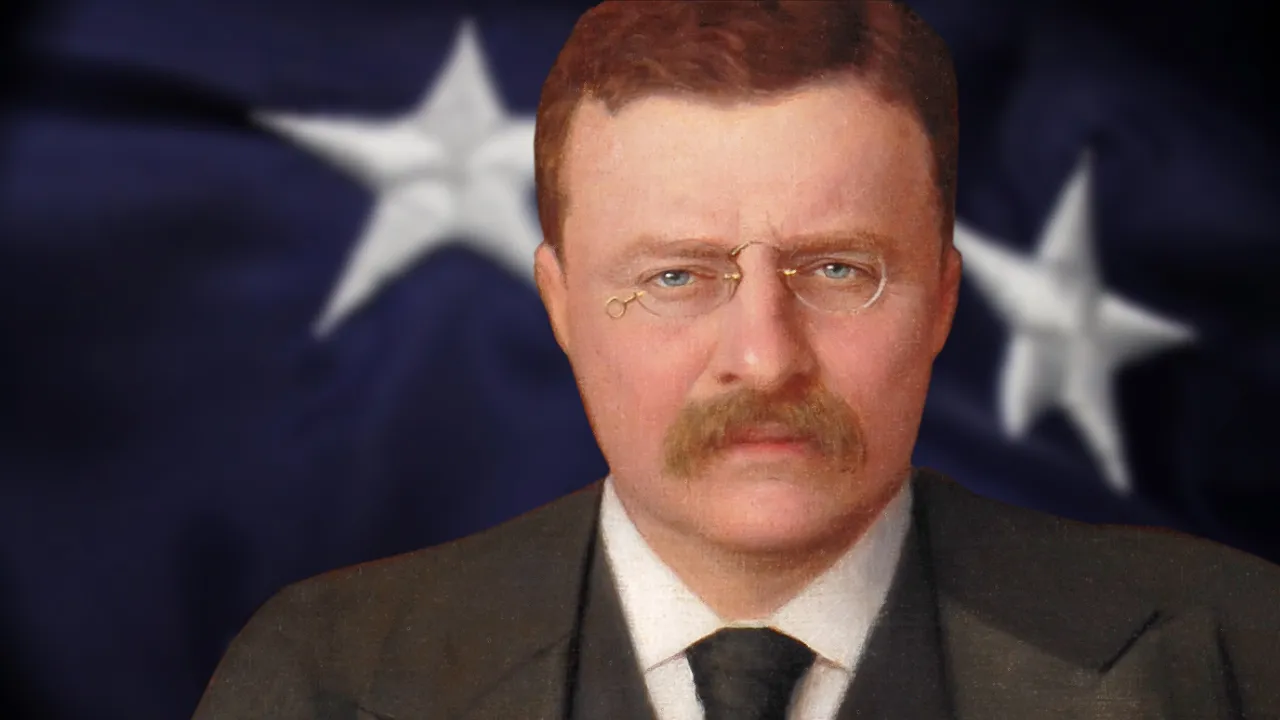
The Rough Rider: The Life and Legacy of Theodore Roosevelt
johnbowe
- 0
johnbowe.info – Theodore Roosevelt, the 26th President of the United States, is remembered as one of the most dynamic and influential figures in American history. From his adventurous spirit to his progressive policies, Roosevelt’s life and legacy continue to inspire generations. Known as “The Rough Rider,” Roosevelt’s remarkable journey from the son of a wealthy family to the leader of the free world is a testament to his strength, determination, and unwavering belief in the power of change.
Early Life: A Boy of Fragile Health
The Roosevelt Family Background
Born on October 27, 1858, in New York City, Theodore Roosevelt was the second of four children in the Roosevelt family. His father, Theodore Roosevelt Sr., was a successful businessman and philanthropist, while his mother, Martha Bulloch Roosevelt, hailed from a Southern aristocratic family in Georgia. Despite being born into privilege, Roosevelt’s early life was shaped by a series of challenges.
As a young child, Roosevelt suffered from numerous health issues, including asthma, which often left him bedridden. However, his father was a crucial influence during this period, encouraging his son to build physical strength and resilience. He adopted the philosophy that a strong mind required a strong body, a mantra that Theodore would carry with him throughout his life.
A Love for Learning and Adventure
Roosevelt’s intellectual curiosity and passion for history, natural sciences, and exploration became evident early on. He spent much of his childhood reading books on various subjects and collecting specimens from nature. His love of adventure was also nurtured by his family. On family trips, Roosevelt was encouraged to observe and document his surroundings, which fueled his desire to explore the unknown.
The Death of His Father
One of the most transformative moments of Roosevelt’s early life was the death of his father in 1878. Theodore Roosevelt Sr.’s passing left a profound impact on the young Roosevelt, who struggled with the loss of the man he admired so much. This event marked a turning point for Roosevelt, motivating him to live life to its fullest. Determined to overcome his frailty, he began to focus more on physical fitness, taking up boxing, hiking, and weightlifting. These efforts transformed him into a robust and energetic individual.
Roosevelt’s Political Rise
A Rapid Ascent in Politics
Theodore Roosevelt’s political career began in earnest when he was elected to the New York State Assembly in 1882, just a few years after completing his education at Harvard University. Despite his relatively young age, Roosevelt quickly gained attention for his progressive views and his ability to tackle corruption within the state government.
In 1889, Roosevelt was appointed as the U.S. Civil Service Commissioner, where he championed reforms aimed at reducing the spoils system—a practice that rewarded political loyalty over merit. His work in this role earned him national recognition and solidified his reputation as a reformer.
The Role of Police Commissioner
Roosevelt’s next major role came in 1895, when he was appointed New York City Police Commissioner. In this position, Roosevelt took on the task of modernizing the police force. He implemented sweeping reforms, focusing on improving efficiency, reducing corruption, and ensuring that officers acted more professionally. Roosevelt’s no-nonsense approach earned him a reputation for toughness and his work as a police commissioner proved his ability to confront challenges head-on.
The Rough Riders and the Spanish-American War
The Call to Arms
The Spanish-American War of 1898 was a defining moment in Theodore Roosevelt’s life. In 1897, as Assistant Secretary of the Navy, Roosevelt was instrumental in preparing the U.S. Navy for war. However, his desire for action went beyond office work, and when war was declared, he resigned from his post and formed a volunteer cavalry unit, the Rough Riders.
Roosevelt’s Rough Riders were a diverse group, including cowboys, Native Americans, and Ivy League athletes. They became legendary for their courage during the Battle of San Juan Hill in Cuba, where Roosevelt personally led his men in a charge that would become one of the most iconic moments of the war. Roosevelt’s actions during the battle earned him national fame and turned him into a hero.
A Hero’s Return
Upon returning from Cuba, Roosevelt was celebrated as a national hero. His bravery and leadership in battle propelled him into the political spotlight. Just a few months after the war, he was elected governor of New York in 1898, where he continued his fight for progressive reforms.
The Presidency: Progressive Reforms and Global Influence
The Rough Rider in the White House
In 1901, following the assassination of President William McKinley, Theodore Roosevelt became the youngest president in U.S. history at the age of 42. As president, Roosevelt implemented a wide range of progressive reforms, including trust-busting, conservation, and the regulation of railroads and other big businesses.
One of Roosevelt’s most significant achievements was his work to protect America’s natural resources. He established the U.S. Forest Service and created five national parks, 18 national monuments, and 150 national forests, thus preserving millions of acres of land for future generations. His conservation efforts helped lay the foundation for the modern environmental movement.
The Square Deal
Roosevelt’s domestic policy, known as the “Square Deal,” aimed to ensure fairness for all Americans. The three core components of the Square Deal were the regulation of corporations, consumer protection, and the conservation of natural resources. Roosevelt believed that the government should mediate between the powerful and the powerless, creating a more equitable society.
One of the most famous instances of Roosevelt’s trust-busting efforts came with the 1904 antitrust case against the Northern Securities Company, a massive railroad monopoly. Roosevelt’s willingness to challenge big businesses earned him the nickname “trust-buster” and solidified his reputation as a champion of the common man.
Foreign Policy: The Big Stick Diplomacy
On the international stage, Roosevelt promoted a policy known as “Big Stick Diplomacy.” His approach emphasized the use of military force to achieve foreign policy goals, combined with diplomacy. Roosevelt famously said, “Speak softly and carry a big stick,” meaning that while the U.S. should aim to negotiate peace, it should also be prepared to use its military might when necessary.
This policy was exemplified by the construction of the Panama Canal, a monumental engineering project that linked the Atlantic and Pacific Oceans. Roosevelt’s ability to secure the canal’s construction solidified his legacy as a leader who expanded American influence on the global stage.
The Legacy of Theodore Roosevelt
A Champion of Progressivism
Theodore Roosevelt’s presidency marked a turning point in American history. His progressive policies reshaped the nation’s economic, social, and environmental landscape. By promoting regulations that balanced the interests of business and labor, Roosevelt set a precedent for future presidents to follow.
His conservation efforts left a lasting impact on America’s wilderness and ensured that future generations would be able to enjoy the natural beauty of the country. Roosevelt’s role in creating national parks and monuments laid the groundwork for the National Park Service, an institution dedicated to preserving America’s natural heritage.
The Model of Leadership
Roosevelt’s character and leadership style continue to be an example for leaders around the world. His combination of intellectual brilliance, physical vigor, and moral courage made him a larger-than-life figure. His approach to leadership was not just about wielding power, but also about inspiring people to take action and make a difference.
The Rough Rider Spirit Lives On
Roosevelt’s life was one of boldness, determination, and resilience—qualities that defined him as a leader and a person. Whether he was climbing the political ladder, charging up San Juan Hill, or preserving America’s wilderness, Roosevelt embodied the spirit of adventure and service. His legacy lives on in the policies he championed and the example he set for future generations.
Conclusion
Theodore Roosevelt, “The Rough Rider,” left an indelible mark on the United States and the world. His life story is a reminder that courage, determination, and an unwavering commitment to progress can change the course of history. From his early struggles with health to his time as President, Roosevelt’s legacy continues to inspire those who believe in the power of leadership, hard work, and a relentless pursuit of justice.


